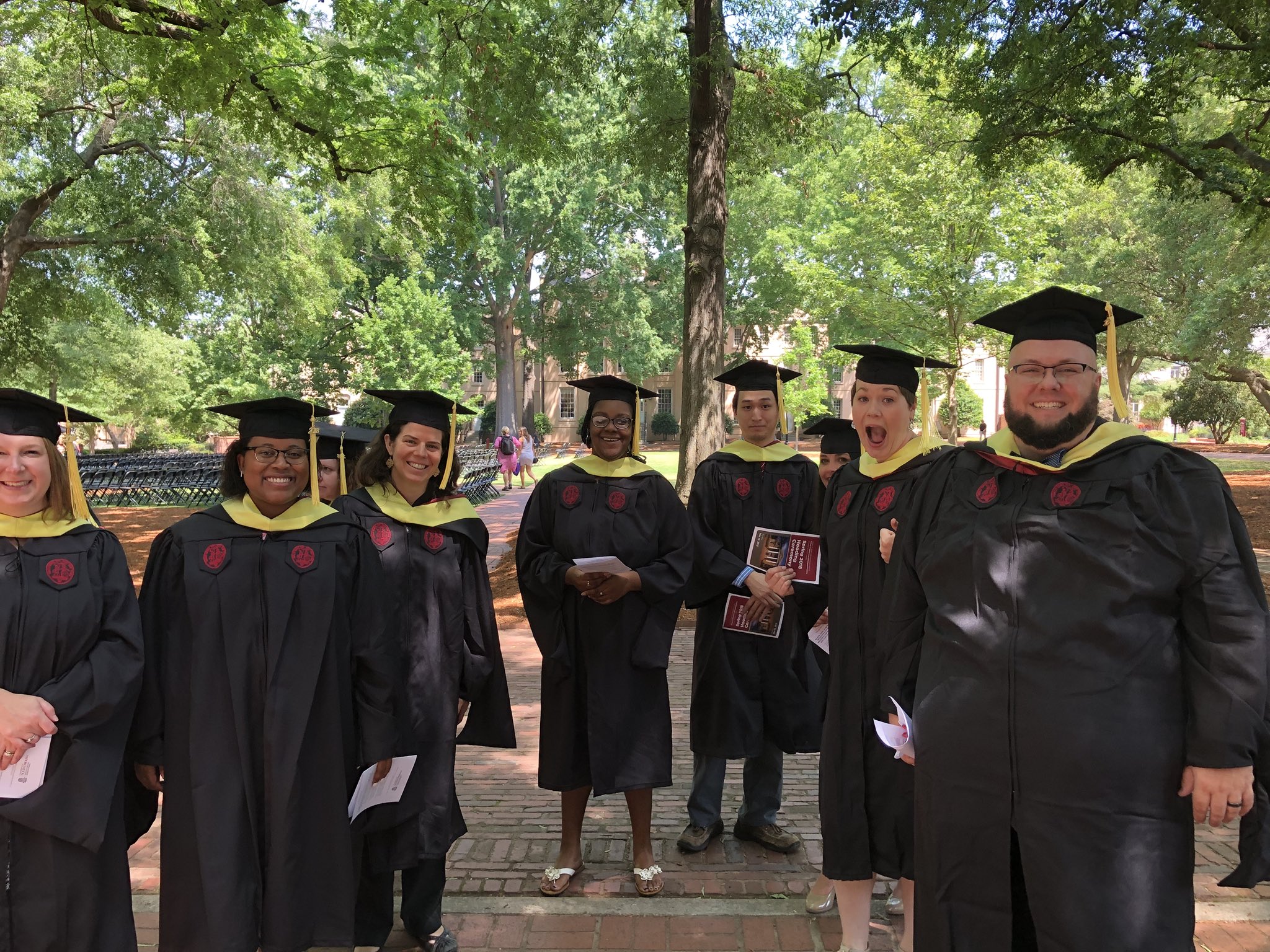On Thursday we held the School of Library and Information Science’s Hooding ceremony leading into weekend graduations. The following are my prepared remarks for the event. It starts off a little heavy, just warning you:
On Tuesday a nurse will hook me up to an IV pump and begin the slow injection of toxic chemicals into my body in an effort to kill the cancer that grows in my immune system. My job is to simply sit. And yet, for this act some will call me brave. Friends and neighbors have sent me thoughts and prayers and offered their support. It was not so a century ago.
It may be hard to imagine in these days of pink ribbons, runs for life, and blood drives, but at the turn of the century cancer was a shame. In the absence of viable treatments those with cancer were seen us unfit and a drag on families and societies. Cancer was a sign of bad character or wrong living, or simply weakness. Thousands upon thousands died hidden away in back rooms and hopeless hospital wards.
Indeed, this stigma still remains for certain cancers. Where funding and fund raising for most cancers has increased over the decades, lung cancer remains far behind. Too many people look at lung cancer as a self-inflicted wound seeing the choice to smoke as the only path to this devastating disease. And here begins the point of this lecture.
Today you are graduating into a missionary corps of library and information professionals seeking to serve our communities. Some of you will serve in libraries, some in banks, some in government, and some in the academy. Your mission is to make our communities smarter, and the lives of those we serve more meaningful.
You would not hesitate to serve cancer patients, but what about those who suffer in quiet because society has not yet change in their views of different challenges? Those who struggle with mental health whose only fault is that their chemical imbalance is in the brain instead of the thyroid or immune system. Or the addict whose struggle with opioids is too often attributed to a lack of will power over genetics or an out-of-control pill culture.
The point is that as an information scientist, librarian, or archivist, you are called to serve. We don’t serve cancer or addiction of depression – we serve people – not users or customers, but neighbors and mothers and colleagues. And when society doesn’t give them a voice and support in their challenges we must.


Dave, that’s brilliant. Let’s just hope that it doesn’t take a century for us to evolve this idea of illness. But even better than hoping is actively working to bring that day around!